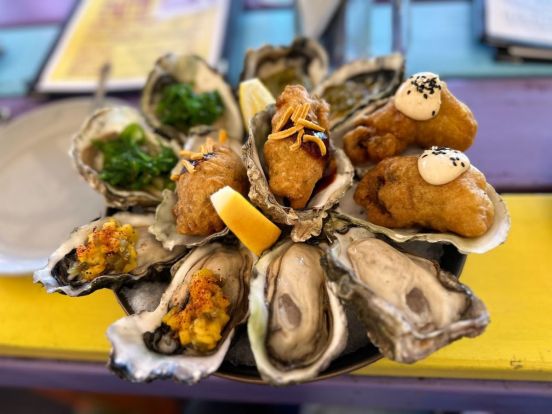New data from the Kai Keepers pilot programme, an initiative by the Restaurant Association of NZ in collaboration with Edge Impact has unveiled significant insights into food waste levels in New Zealand’s cafés and restaurants.
The initial phase of the programme, which is supported by the Ministry of the Environment has provided a detailed analysis of waste generation and identified key areas for targeted reduction.
During a seven-day baseline period in February, involving 120 participants across Auckland, Bay of Plenty, and Waikato, the Kai Keepers programme uncovered the following statistics:
- Food waste: Over 13 tonnes of food waste were recorded from 108,730 covers, resulting in more than 15 tonnes of CO2 emissions.
- Plate waste: 43% of the total food waste comes from uneaten food on customer plates.
- Desserts: Cold desserts are a significant contributor to plate waste, often left partially uneaten by customers or unsold.
- Average waste per cover: Each cover contributes an average of 171 grams of food waste, costing approximately $0.94 per cover.
Key Insights
1. Meat preparation wastage: Preparation of meats correlates with the highest levels of waste.
2. Cabinet produce: Items displayed in cabinets contribute to increased waste per cover.
3. Dessert dilemma: Cold desserts frequently remain partially uneaten, adding to the waste crisis.
4. Price and takeaway options: Lower price range takeaway options see reduced preparation waste.
5. Portion sizes: Larger portion sizes lead to more waste per cover.
6. Charity efforts: Cafés donating to charity report less spoilage waste.
7. Under-forecast covers: Fewer than expected covers result in higher waste per cover.
8. Spoilage surge: Waste increases with fewer opening days.
Marisa Bidois, CEO of the Restaurant Association, emphasised the importance of these findings. “Information like this has not been collected at this level before and is incredibly useful for business owners because it helps them address the root causes of food waste. We’re not always a data-rich industry, so these insights are invaluable and will help us to identify ways to reduce waste in our industry. This is both a financial issue for our businesses as well as an environmental one. We need to encourage some behaviour changes to curb this waste.”
Initial Findings
1. Staff involvement: Business owners, managers, and staff were eager to adopt and enhance waste management practices, showcasing the industry’s growing commitment to sustainability.
2. Environmental impact: The food waste recorded results in significant CO2 emissions, highlighting the environmental impact of current practices.
3. Cost implications: The average waste per cover contributes to financial losses for businesses.
4. Innovative solutions: Participants expressed interest in finding creative ways to reduce waste, such as using preparation waste in new dishes.
5. Behavioural changes: The data suggests a need for behavioural changes among both staff and customers to curb food waste.
Measurement Equals Management
Alison Rowe, CEO of Edge Impact, highlighted the role of measurement in creating impact. “Understanding the drivers of food waste is crucial for delivering long-term impact. As the saying goes, ‘what gets measured gets managed.’
“Kai Keepers’ baselining phase has provided critical insights to the hospitality sector, crucial for reducing waste and preventing commercial losses from food going to waste. The insights from the Kai Keepers programme provide a solid foundation for developing strategies that not only minimise waste but also enhance sustainability across Aotearoa’s cafés and restaurants. By building capability through tailored interventions and embedding these practices, we can achieve significant long-term impacts.”
Phase Two – testing strategies
The Kai Keepers programme will now move into its next phase, testing various strategies to reduce food waste, including:
- Offering smaller portion options: Providing different portion sizes or reviewing and optimising the portion size of high-waste menu items.
- Innovative menu engineering: Utilising preparation waste in new and creative ways.
- Upsell competitions: Encouraging staff to upsell items nearing their spoilage date to reduce waste.
These interventions aim to help restaurants adjust their practices by implementing innovative waste management strategies, ultimately benefiting both the environment and their bottom line. The pilot will run throughout the year, with a plan to roll out a nationwide programme in 2025.
For more information on the Kai Keepers programme, visit Restaurant Association Kai Keepers Programme.








